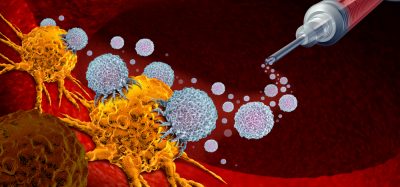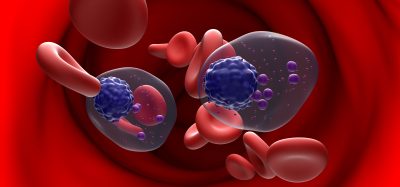New contamination-detection test to improve T-cell therapy
Posted: 28 November 2023 | Drug Target Review | No comments yet
Method to improve sterility assurance in biopharmaceutic manufacturing will lead to better patient outcomes.


A novel method that can identify contaminants in T cell cultures within 24 hours has been developed by researchers from Critical Analytics for Manufacturing Personalized-Medicine (CAMP) Interdisciplinary Research Group (IRG) at Singapore-MIT Alliance for Research and Technology (SMART), MIT’s research enterprise in Singapore, in collaboration with Singapore Centre for Environmental Life Sciences Engineering (SCELSE) and Massachusetts Institute of Technology (MIT).
The method can detect low-abundance levels of microbial contaminants and accurately determine their types, enabling therapeutic products like T-cell therapies to be contamination free with a quicker turnaround. Cell therapies are becoming more widespread, such as chimeric antigen receptor T cells (CAR-T cells) for blood-related cancers. Living medicines cannot be sterilised, so ensuring cell therapy products are safe from contamination before administering them is key. Presently, traditional sterility tests are laborious, taking between seven to 14 days. Therefore, quicker methods could be lifesaving for patients who cannot afford treatment delay.
The SMART team used third generation nanopore long-read sequencing to find harmful microorganisms. This was followed by advanced machine learning algorithms and computational analysis to improve the overall process and guarantee accuracy and speed. First author on the paper Dr James Strutt, Senior Postdoctoral Associate at SMART CAMP, explained: “The practical application of this discovery is vast; it offers faster product validation for biopharmaceutical manufacturers, reducing downtime and potentially accelerating product-to-market timelines. These advancements hold significant promise for the biopharmaceutical industry, as they not only enhance quality control but also improve overall efficiency and cost-effectiveness, ultimately benefiting patients by ensuring the safety and reliability of cell therapy products.”
Currently, SMART CAMP is planning to start testing to evaluate the integration of the T cell sterility test into their processes and enhance the accuracy of contamination detection further. In the future, research will concentrate on providing a similar level of detection for viruses and will be finalised at MIT.
Co-corresponding author Dr Stacy L. Springs, Principal Investigator at SMART CAMP and Executive Director at MIT Center for Biomedical Innovation, stated: “Our rapid method offers a more efficient way to not only detect microbial contamination but identify the contaminating species. We demonstrated that this method can deliver a high-sensitivity microbial sterility assessment within just 24 hours, providing a valuable tool for researchers and hopefully practitioners in the near future.”
This study was published in Microbiology Spectrum.
Related topics
T cells
Related conditions
blood cancers
Related organisations
Critical Analytics for Manufacturing Personalised-Medicine (CAMP) Interdisciplinary Research Group (IRG), Massachusetts Institute of Technology (MIT), Singapore Centre for Environmental Life Sciences Engineering (SCELSE), Singapore-MIT Alliance for Research and Technology (SMART)







